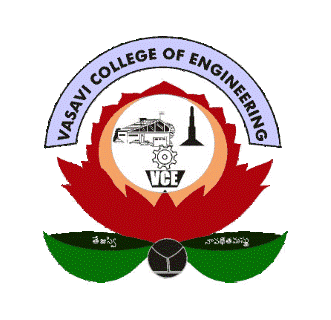The Board of Studies (BoS) all Departments 2023 to 2026
GUIDELINES OF BOARD OF STUDIES
The Board of Studies (BoS) is the basic constituent of the academic system of our Institute. Its functions will include framing the content of various courses, reviewing and updating the content from time to time, introducing new courses of study etc.
COMPOSITION OF BOARD OF STUDIES:
The composition of the Board of Studies is given below:
- Head of the department concerned (Chairman).
- The entire faculty of each specialisation.
- Two experts in the subject from outside the college to be nominated by the Academic Council.
- One expert to be nominated by the vice-chancellor from a panel of six recommended by the college principal.
- One representative from industry/corporate sector/allied area relating to placement.
- One postgraduate meritorious alumnus to be nominated by the principal.
-
The chairman, Board of Studies, may with the approval of the principal of the college, co-opt:
- Experts from outside the college whenever special courses of studies are to be formulated.
- Other members of staff of the same faculty.
TERM
The term of the nominated members shall be TWO years.
MEETING
The principal of the college shall draw the schedule for meeting of the Board of Studies for different departments. The meeting may be scheduled as and when necessary, but at least once an year
Functions of the board of studies
The following shall be the functions of the Boards of Studies:
- To frame and revise as frequently as necessary the syllabus of the subject concerned shall be the main function of the Board of Studies.
- To prepare a detailed content of different courses of each department and submit to the Academic council/ Board of Governors for approval.
- To recommend to the Academic council/ Board of Governors the rules, regulations and minimum qualifications required for admission into subject/course concerned.
- To prepare/revise panels of paper setters and examiners for valuation, practical and viva-voce and panels of adjudicators for Thesis / Dissertation / Project Work of UG/PG courses.
- To prepare model question papers for the subject concerned as and when there is a revision of syllabus.
- To recommend to the Academic council/ Board of Governors in regard to Text books, courses of study and the scheme of study and examinations in the subject concerned.
- To recommend to the Institute the qualifications required to teach a particular course/ subject/paper.
OPINION BY CIRCULATIONS
In case of exigency, the Chairman (BoS) / Head of the department / principal may obtain the opinion of the members of BoS by circulation of any proposal. Such opinion together with the action taken thereon shall be communicated to all the members of BoS and to the Academic council/ Board of Governors.
MEETINGS OF THE BOARDS OF STUDIES:
- Each PG/UG Board shall meet at least once in an academic year.
- The Chairperson of the Board concerned will preside over the meetings of the Board of Studies. In his/her absence, the other members will nominate one among them to preside over the meeting.
- The chairperson of each Board of Studies shall arrange to prepare the agenda for each meeting and cause it to be sent to all the members at least fifteen days before the date of the meeting.
- The quorum for each Board of Studies meeting shall be not less than 1/3 (one third) of the total strength of the Board.
- The decisions in the Board of Studies shall be made as far as possible by consensus and, if required, by majority.
- The Chairperson of Board of Studies shall prepare the minutes of each meeting and shall submit them to the Academic council/ Board of Governors.
- Members desiring to move resolutions shall forward the same to the Chairperson concerned at least 10 days prior to the date of the meeting.
EXISTING BOARDS OF STUDIES
The following are the P.G. and U.G. Boards of Studies functioning at present in the institute:
Individual Board of Studies for UG and PG
| Sl No. | Name of the Board of studies |
| 1. | Civil Engineering |
| 2. | Computer science and Engineering |
| 3. | Electronics and Communication Engineering |
| 4. | Electrical & Electronics Engineering |
| 5. | Information Technology |
| 6. | Mechanical Engineering |
| 7. | Computer Applications |
| 8. | Mathematics |
| 9. | Humanities and Social Sciences |
| 10. | Physics |
| 11. | Chemistry |
In addition, the Principal will constitute separate Boards of Studies for UG/PG courses as and when new courses of study are introduced.
